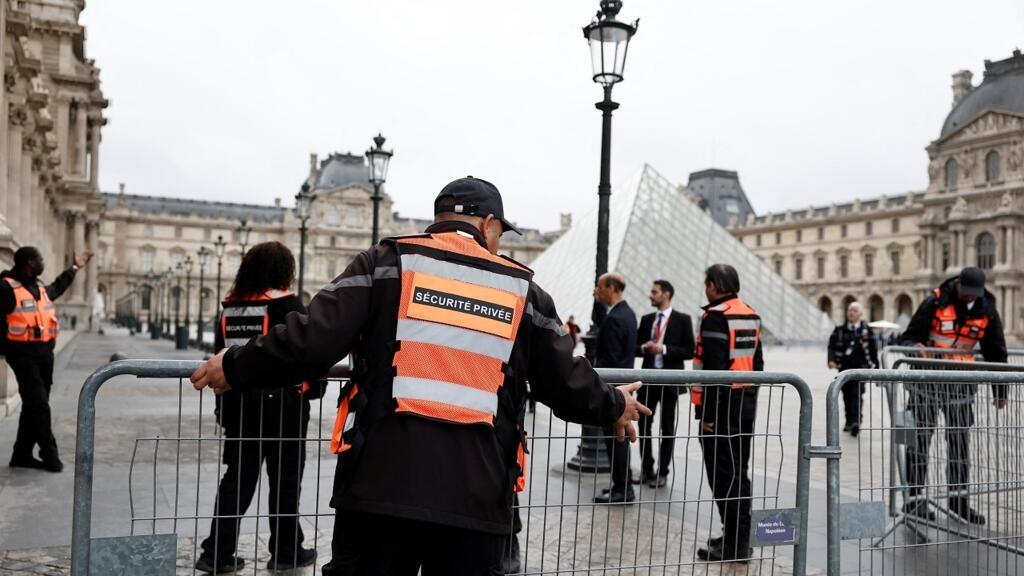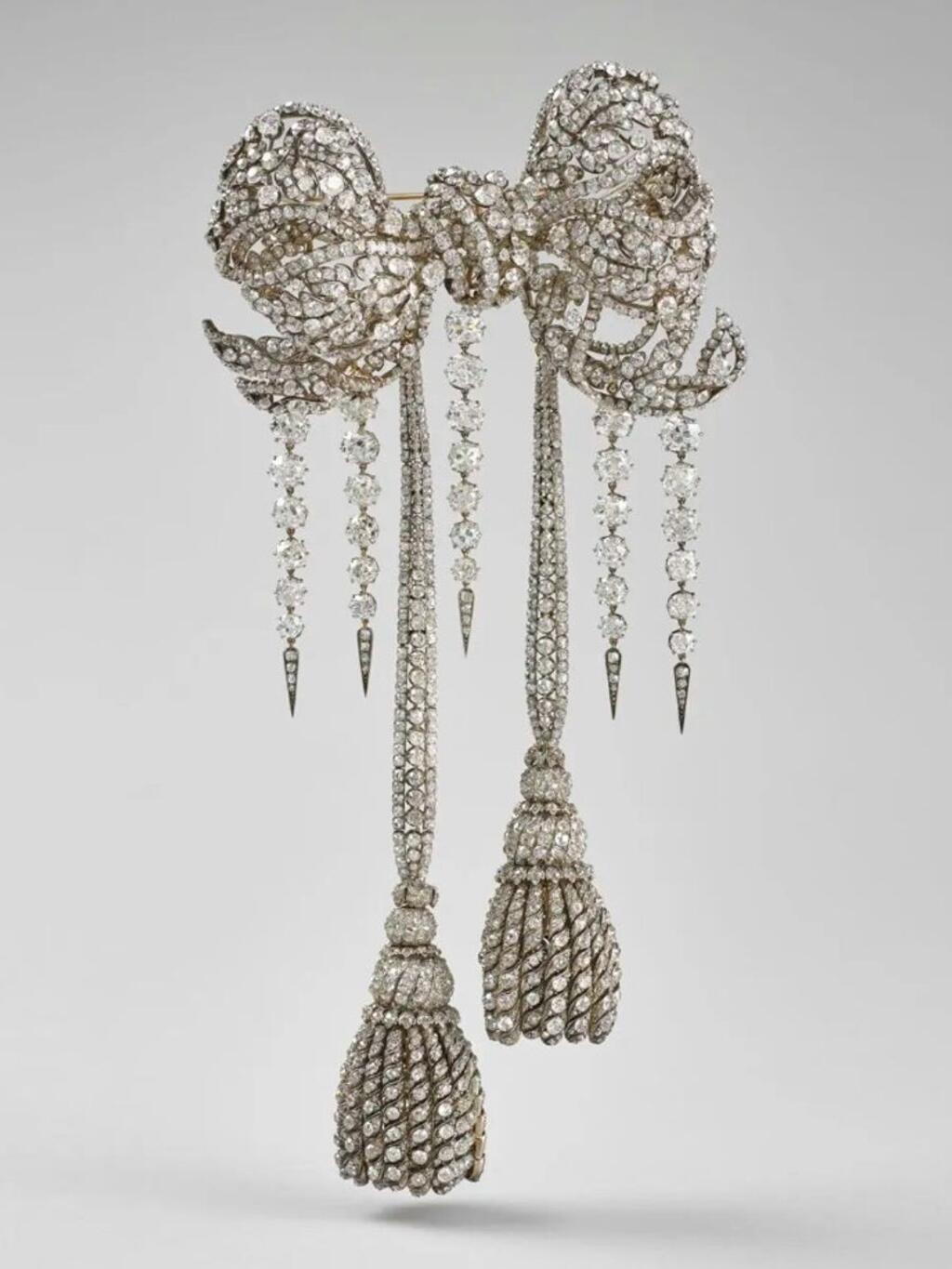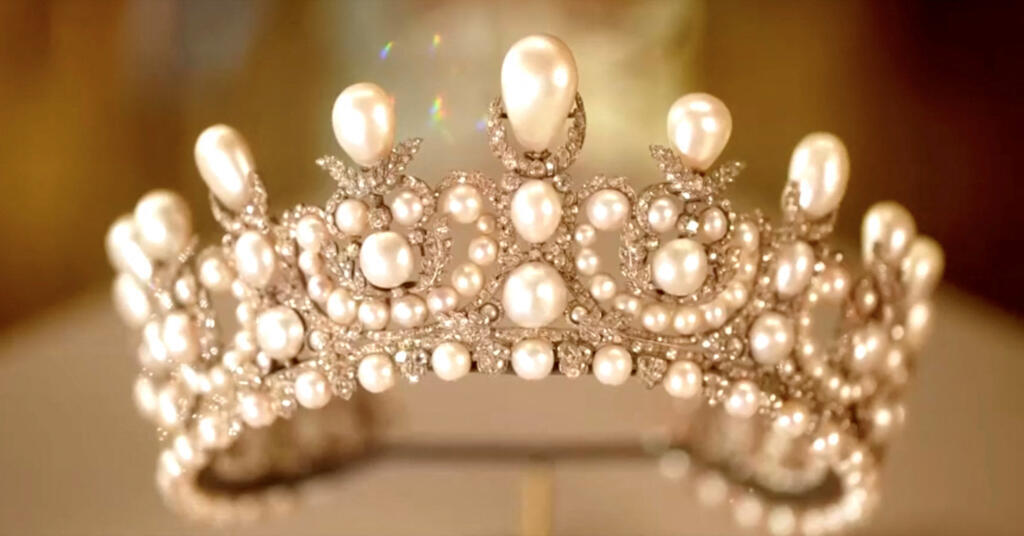
Paris – On Sunday, shortly after the Louvre opened, four burglars made away with eight pieces of jewellery once belonging to French royalty, fleeing the museum on scooters. While experts say the priceless items will be impossible to sell in their current condition, questions are also being raised over security failings and warnings unheeded.
The robbery has also reignited the debate over museum security in France. Shortcomings have been previously pointed out on numerous occasions, and the Louvre heist, carried out in broad daylight at the world's most visited museum, is just the latest in a series of incidents.
Among the stolen items were a tiara belonging to Empress Eugénie, wife of Napoleon III, which features nearly 2,000 diamonds. The thieves also took a sapphire necklace belonging to Marie-Amélie, wife of Louis-Philippe I and the last queen of France, and Queen Hortense, the mother of Napoleon III which is composed of eight sapphires and 631 diamonds, according to the Louvre's website.
Experts have said it would be impossible to resell these jewels in their current state, as they are listed in royal and imperial inventories, as well as in museum inventories.
They say the most likely scenario is that the jewellery will be resold once it has been dismantled.
Louvre remains shut for a second day as police hunt jewel heist gang

Magali Teisseire, a jewellery expert for the auction house Sotheby's said: "An old-cut diamond can be recut into another shape and resold. Unfortunately, if they are recut, it is impossible to determine their origin as they are no longer stones with recognisable cuts, facets and inclusions."
For auctioneer Olivier Valmier, the investigation into the heists is also a race against time to prevent the destruction of the pieces, whose gold could be quickly melted down.
"This week, [gold] reached a record price of €120,000 per kilo. But the value of gold is less than that of precious stones per unit," he added.
Experts capable of cutting diamonds of this size optimally are rare, and the work could take several months.

Missing works
Around 60 investigators from the Paris judicial police's banditry squad (BRB) and the Central Office for the Fight against Trafficking in Cultural Property (OCBC) have been mobilised.
On Sunday evening, French President Emmanuel Macron promised: "We will recover the works and the perpetrators will be brought to justice. Everything is being done, everywhere, to achieve this."
However, many priceless objects stolen from global cultural institutions have never been recovered.
In 1990, two men dressed in police uniforms robbed Boston's Isabella Stewart Gardner Museum by setting off the fire alarm in the middle of the night.
They removed 13 paintings and drawings by Rembrandt, Vermeer and Manet from their frames. The museum is still offering $10 million dollars for any information on their whereabouts.
In 2002, the Van Gogh Museum in Amsterdam was targeted by the Neapolitan mafia. The thieves climbed on to the roof with a ladder, broke a window and descended into the exhibition hall using a rope.
The two Van Gogh paintings they took were discovered in 2016 during a raid on the home of one of the Camorra mafia bosses.
In 2018, a Berlin gang stole 21 pieces of jewellery from a museum in Dresden, Germany, three of which are still missing.
This is not the first time the Louvre has been targeted. In 1911 its most famous exhibit, The Mona Lisa, was stolen – by a glazier who worked for the museum. The painting was returned two years later.
The Paris museum was last targeted in 1998, when a painting by French painter Camille Corot was stolen and has still not been recovered.
Louvre plagued by leaks and crumbling infrastructure, museum boss warns

Questions over security
"We have failed," said French Justice Minister Gérald Darmanin on Monday, the day after the Louvre theft.
The museum "has failed to keep up in the deployment of equipment designed to protect the works", according to a previous report by the Court of Auditors consulted by French news agency AFP.
The Court, which examined the period between 2019 and 2024, noted a "persistent delay" in this area.
It found that many rooms in the museum are not protected by video surveillance, and the that obsolescence of much of the equipment has accelerated "at a much faster rate than the pace of investment by the institution to remedy the situation".
In January, the president of the Louvre, Laurence Des Cars, alerted Culture Minister Rachida Dati to flaws in the museum's security.
Trade unions have denounced a lack of security staff at the museum. On 16 June, the Louvre was closed for several hours due to a strike by employees, carried out as a warning over the shortage of security personnel.
"The Louvre Museum is short of several hundred reception and security staff," Alexis Fritche, secretary-general of the CFDT Culture union, told RFI's Laurence Théault. "When the theft took place, there were four staff members on duty instead of the six scheduled. There was a glaring shortage of staff."
"We believe that there needs to be an audit of security and prevention measures. It is often the staff who are best placed to talk about the difficulties and weaknesses that may exist, particularly in a security system," Fritche added.
Christian Galani, a representative of union CGT Culture, told AFP that the Louvre's security team had seen "200 jobs cut in 15 years, while visitor numbers have increased 1.5 times".
"You can walk through several areas without seeing a single security guard, and several rooms are systematically closed due to a lack of available staff," he said.
Series of recent thefts
The theft at the Louvre is only the latest in a series of incidents. In September, a thief removed 6 kilograms of gold nuggets from the Natural History Museum in Paris.
The museum's alarm and video surveillance systems had been "inoperative" since a cyberattack on 25 July, AFP learned from police sources – which the museum has neither confirmed nor denied.
Also in September, two Chinese platters and a vase – classified as "national treasures" and worth several million euros – were stolen from the Adrien Dubouché National Museum in Limoges.
Chinese woman arrested following September gold theft at Paris museum
"We are well aware that French museums are highly vulnerable," Interior Minister Laurent Nuñez acknowledged on Sunday when asked about possible flaws in the Louvre's security system.
On Monday, he sent instructions to all prefects to strengthen security measures around cultural institutions where necessary.
Des Cars is due to be heard by the Senate on Wednesday. Laurent Lafon, chairman of the Cultural Affairs Committee, told AFP that she must provide "her explanations following Sunday's theft".
A commission of inquiry into the security of museums across the country will also be proposed to the National Assembly.
The Louvre, which remained closed on Tuesday, is set to undergo major renovations. At the beginning of the year, Macron announced works estimated to cost up to €800 million over a period of 10 years.
This article was adapted from this report and this report by RFI's French service.







